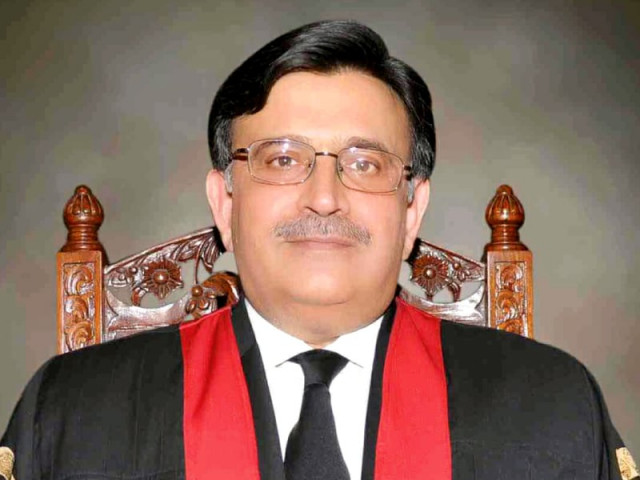Power woes: LHC orders audit of Rs480b payment to IPPs
Petitioner says govt has not complied with court orders.

LHC orders audit of Rs480b payment to IPPs. PHOTO: FILE
Lahore High Court Chief Justice Umar Ata Bandial on Friday ordered the audit of the payment of Rs480 billion made to independent power producers (IPPs).
He was hearing a petition against load shedding and an application challenging the recent increase in power tariff
The chief justice adjourned the hearing of petition till November 25.
He also sought the load shedding schedule.
Judicial Activism Panel Chairman Muhammad Azhar Siddique has filed the application to his petition against load shedding and electricity theft.
Siddique says load shedding schedule has not eased even though the government has paid Rs480 billion to IPPs. He says recovery of equalisation surcharge has been initiated on electricity bills. Joint Secretary for Water and Power Zargam Ishaq Khan told the court that unannounced load shedding had been abolished.

Siddique said the federal government had not overcome power theft. He said the government had also failed to cut the administrative costs.
He said electricity tariff hike by reducing the subsidy was a violation of Articles 9, 14, 18, 23, 24 and 25 of the Constitution.
He said during the hearing of the main case, the court had directed the WAPDA to file details of payments made to IPPs on account of circular debt and also revise certain categories of the tariff.
He said the government had not complied with court orders and had instead raised the power tariff.
He said asked the court to declare the raise in power tariff and decrease in subsidy by the federal government through NEPRA notifications be declared illegal.
LHC reserves verdict on party-less polls
A Lahore High Court division bench reserved its verdict on Friday on a set of petitions against the party-less polls in the Punjab under the new local government law.
Pakistan Tehreek-i-Insaf (PTI) Punjab president Ijaz Chaudhry, the Pakistan Peoples Party, the Majlis-i-Wahdatul Muslimeen, Rizwan Gul and the Pakistan Lawyers’ Foundation among others, had filed petitions against the new law. Earlier, the petitioners’ counsel had submitted that the new law was unwarranted as it provided for local government elections on non-party basis.
They said partyless local government elections violated the Constitution and democratic norms. They said the national and provincial assemblies had all come into being through polls held on party basis.
They said party-less elections would lead to corruption and nepotism. Several clauses of the Local Government Act were contrary to the Constitution, they said.
They submitted that the new law ignored the Articles 62 and 63 of the Constitution and violated the fundamental rights and concept of democracy.
The respondent’s counsel told the court that local governments had nothing to do with politics. He said its purpose was efficient local administration.
He said after the 18th Amendment the provincial government had the right to ask the election commission to hold the election.
Professor Rasul Bakhsh Rais of the Lahore University of Management Sciences (Lums), who was appointed amicus curie (friend of court) supported the petitioners’ point of view. He said party-less polls were against democratic norms. Rais also said the democratic system in the country could not get stronger unless political parties had their roots in public.
Pakistan Muslim League-Nawaz’s Punjab Lawyers Forum President Sharif Zafar also filed a petition to become a party in the case.
His counsel Rana Asadullah Khan submitted that party-less elections were in accordance with the Constitution.
He said party-less local government elections were meant to “protect individual’s fundamental rights.” He said political parties were more organised and financially better off than individual candidates.
He said the local bodies were meant to provide facilities and services to the people. “Members of the legislative assemblies make laws and have to follow the party policies and political objectives for which they get votes,” he said.
He submitted that the voters in local bodies’ election did not have to elect their local representatives on the basis of party affiliation.
He said the fundamental rights envisaged in Article 8 of the Constitution were best protected through non-partisan election at the local level.
He requested the court to dismiss the petition.
Published in The Express Tribune, November 2nd, 2013.



















COMMENTS
Comments are moderated and generally will be posted if they are on-topic and not abusive.
For more information, please see our Comments FAQ